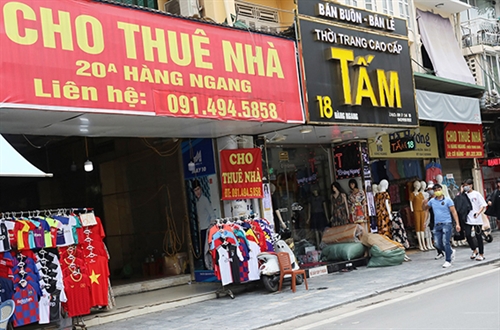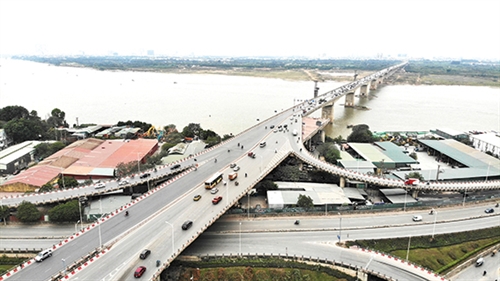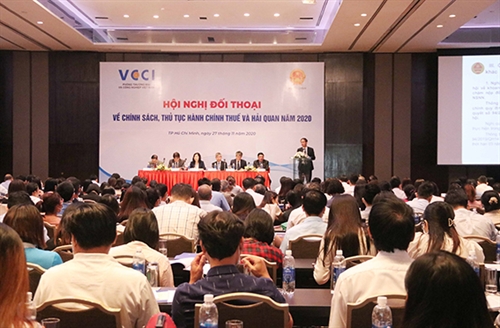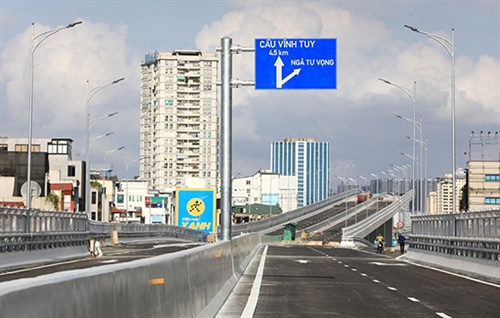The number of service contracts involving foreign elements has kept increasing in Vietnam. However, it remains hard to determine the law applicable to this kind of contract. This article focuses on issues related to the determination of the applicable law for service contracts involving foreign elements and proposes solutions for improving relevant regulations.
Phan Hoai Nam, LL.D, and Le Minh Nhut, LL.M[1]
Like other contracts involving foreign elements, it is always complicated to determine the law applicable to service contracts involving foreign elements as foreign elements give rise to the possibility that more than one legal system may be used for governing such contracts. Basically, Vietnam has created a relatively adequate legal system to regulate this issue. Specifically, Article 683 of the 2015 Civil Code (the Code) states that parties to a contract involving foreign elements may agree to choose the law applicable to their contract; in the absence of such agreement, the law of the country with which that contract is most closely associated shall apply.
As spelt out in Clauses 2 and 3 of Article 683 of the Code, the law regarded as most closely associated with a service contract is the law of the country where the service provider being an individual resides or where the service provider being a legal person is established. In case the law of another country can be proven to be more closely associated with the contract, the law of that country shall apply.
The above provisions are relatively specific but reveal difficult to be applied in reality for the reason that they are novel while dispute settlement bodies may flexibly identify factors considered grounds for application of the law of the country with which that contract is more closely associated. The question is what factors may be used for determining the law regarded as more closely associated with contracts, especially service contracts. Moreover, with respect to agreement on choice of the law applicable to contracts, the issue of determining the legality and effect of such agreement is left unsettled under Vietnam’s current legal system.
Below the authors will analyze issues concerning the determination of the applicable law when parties reach agreement on law choice and when they have no such agreement, then give proposals on determination of conditions for agreement on choice of the applicable law to take effect and factors serving as grounds for determining the law regarded as the most closely associated with service contracts involving foreign elements in Vietnam.
In case parties have agreed on choice of applicable law
According to Article 683.1 of the Code, on the principle of self-disposition between parties in a contractual relation in general, service contracts involving foreign elements are also regulated by the priority law as agreed upon by the parties. It should be noted that this principle is applied not only to service contracts involving foreign elements but also to all contracts with foreign elements. Notably, not all the laws agreed upon by the parties are accepted by a competent state authority. To be accepted, such a law must meet certain conditions concerning the legality of their agreement on choice of applicable law and conditions concerning the chosen law.
The legality of agreement on choice of applicable law is manifested through conditions relating to subjects of contracts, requiring them to have full capacity and competence, while ensuring adherence to the principles of equality and voluntariness. As stated in Article 668.4 of the Code, the applicable law chosen by the parties shall be provisions directly governing their rights and obligations, i.e., the chosen law must contain substantial provisions but not contradictory provisions which are provisions on determination of the applicable law. In addition, under Article 664.2 of the Code, the parties may only choose the applicable law when a treaty to which Vietnam is a contracting party or Vietnam’s law prescribes that the parties have the right to choose the applicable law. For service contracts involving foreign elements, the determination of the applicable law is specified in Article 5 of the 2005 Commercial Law regarding the right to choose a foreign law or international trade practices. However, such article makes no mention whether parties may agree to choose a treaty of which Vietnam is not a member. Article 665 of the Code regarding application of treaties to civil relations involving foreign elements is also silent on this issue. Some hold that, based on Article 664.2 of the Code, it can be concluded that parties may choose a treaty to which Vietnam has not yet acceded to govern their contractual relation. However, others think that Article 665 of the Code only mentions treaties to which Vietnam is a contracting party, therefore, it can be reasoned that Vietnam does not accept the application of a treaty to which it has not acceded when such treaty is chosen by the parties.[2]
In the European Union (EU), the choice of treaties for application may be carried out indirectly through the agreement on choice of the law of a certain country that is a contracting party to the treaty which the parties wish to choose. This form of law choice is accepted in legal reality in the EU countries.[3]
Meanwhile, the Chinese law only gives the most general provision on the right of parties to agree on choice of the law that will regulate their contractual relation without imposing any limitations on the law to be chosen. In practice, the Chinese court accepts the right of parties to agree on choice of the applicable law, regardless of whether it is a foreign law, international practice, or treaty to which China has not acceded, on the condition that such law meets the required conditions.[4] Similarly, the law of Singapore does not set any restrictions on the law the parties may agree to choose provided that such agreement satisfies the three conditions for being recognized as lawful under the Vita Food principles[5].
From the above analyses, the authors propose it is necessary to accept the parties’ agreement on choice of the law which is a treaty to which Vietnam has not yet acceded for application to their contractual relations in general and service contracts involving foreign elements in particular so as to boost the development of international trade relations. This is also suitable to the past application of law in Vietnam when both the arbitration and the court accepted the application of the United Nations Convention on Contracts for the International Sale of Goods (CISG 1980) though at that time Vietnam had not ratified this Convention. Such acceptance also complies with Article 664.2 of the Code regarding the right of parties to choose the applicable law.
Regarding the conditions on the chosen law, Article 670.1 and Article 666 of the Code state that the to-be-applied law must not be contrary to the fundamental principles of Vietnam’s law. However, the content of “fundamental principles of Vietnam’s law” remains a big question which is not officially answered by its competent authorities. This content is solely provided in Resolution 01/2014/NQ-HDTP of the Judicial Council of the Supreme People’s Court which seems to be not specific enough. Article 14.2.dd of this Resolution states that “the arbitral award that contravenes the fundamental principles of Vietnam’s law” means an award that violates the fundamental principles of conduct prevailing in the formulation and implementation of Vietnam’s law.
To clarify, the Resolution gives several examples. In case the parties have voluntarily reached agreement on the dispute settlement and this agreement did not contravene law and social morality but the arbitration tribunal refused to include this agreement in the arbitral award, it can be said that the arbitral award has violated the principle of free and voluntary agreement in the commercial field specified in Article 11 of the 2005 Commercial Law and Article 4 of the Code, etc. The court shall consider and decide to cancel this arbitral award because it contravenes the fundamental principles of Vietnam’s law.
In case one disputing party supplies evidence proving that the arbitral award has been established due to coercion, deception, threat or bribe, that means the arbitral award has violated the principle “arbitrators must be independent, objective and impartial” mentioned in Article 4.2 of the 2020 Law on Commercial Arbitration.
So, it can be seen that the connotation of “fundamental principles of Vietnam’s law” is rather broad, covering all principles of domestic law, included in different legal documents, and easily applied by judges.
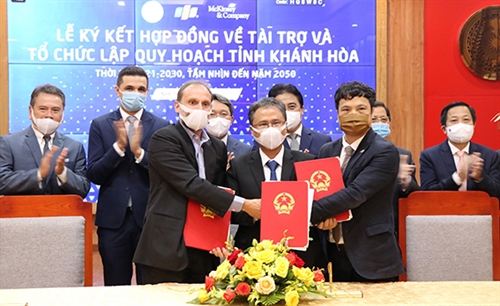 |
| Representatives of the People’s Committee of Khanh Hoa province, FPT Group and McKinsey & Company Vietnam Ltd. shake hands after signing a contract on formulation of a master plan of Khanh Hoa province for the 2021-30 period on May 27__Photo: Tien Minh/VNA |
In case parties have no agreement on choice of applicable law
If parties have not agreed on the applicable law or have such agreement but it is illegal, the law applicable to their contract will, as stated in Article 683.1 of the Code, be the law which is most closely associated with the contract. Article 683.2.b of the Code presumes that the law regarded as most closely associated with a service contract is the law of the country where the service provider being an individual resides or where the service provider being a legal person is established. Meanwhile, Article 683.3 of the Code says in case the law of a country can be proven to be more closely associated with the contract, the law of that country shall apply.
However, it is seen in reality that the country having the law regarded as most closely associated with the service contract is not the habitual residence or place of establishment registration of the service provider but is the place where the service is provided. And in many cases, it is very difficult to determine the place of service provision, e.g., for logistics service contracts.
In addition, the above clauses also received not a few criticisms. Specifically, Clauses 2 and 3 of Article 683 appear inappropriate. Clause 1 talks about priority in application of the law most closely associated with a contract for settlement of the dispute of the parties if they have no agreement on law choice. In other words, the law most closely associated with the contract as mentioned in Clause 2 is the second-priority law, following the law agreed upon by the parties. Nevertheless, Clause 3 is an exclusion one, giving priority to the application of the law proven to be more closely associated with the contract. Logically, it is impossible that “a law is more closely associated” with the contract than the law regarded as “the most closely associated” with the contract. This may obstruct competent authorities in application.
It can be said that with the first time of application of the theory of close association between the applicable law and contracts, including international service contracts, the flexibility of the above clauses might cause problems, even lead to the case in which judges make interpretation toward referring to Vietnam’s law as they hesitate to apply foreign laws. At the same time, given that the Code has been just enforced for a period not long enough, it is important now to identify what factors can help determine the law which is more closely associated with service contracts involving foreign elements in particular and contracts involving foreign elements in general.
Remarks and recommendations
As contracts in general and service contracts involving foreign elements in particular are diverse so in many cases the applicable law is not fully covered by the legal system or the presumption of the law regarded as the most associated with contracts may be not true in all cases. Experiences in some countries show that in order to help judges flexibly apply the law, the theory of close association between the applicable law and contracts should be used. However, the proposal appears to be inappropriate in Vietnam because for the time being, such flexibility has just been gradually recognized by the judges’ creation and application of court precedents as well as settlement of cases and matters based on equity[6], while the quality of judges and judgments remains poor. Therefore, it is necessary to prepare human resources, especially judges with high professional qualifications and expertise in civil relations involving foreign elements in general and service contracts involving foreign elements in particular, so as to help the judges accurately determine the law which is more associated with contracts in specific circumstances.
Particularly, the authors suggest application of the Rome I Regulation through accepting the application of the theory of close association between the applicable law and contracts as an exception to the general principles governing specific relations of private international law, first of all contractual relations and compensation for non-contractual damage. The flexibility of clauses governing this issue will help judges determine the applicable law in specific situations as well as ensure efficient settlement of these relations.
The above recommendation is not simply a technical solution in legislative activities. It will help ensure the specificality and feasibility of the clause on applicable law in case of absence of an agreement on choice of applicable law. At the same time, it will also contribute to reducing the power of competent agencies in self-determining the law which is the most associated with contracts.
In the immediate future, the Judicial Council of the Supreme People’s Court should provide instructions on factors used to determine the law which is more closely associated with contracts, even examples of typical cases and matters based on such factors as territory and personal details, e.g., the place where majority of services under an international service contract are provided, the habitual residence of the service provider, or the place where the service is licensed, etc.-
